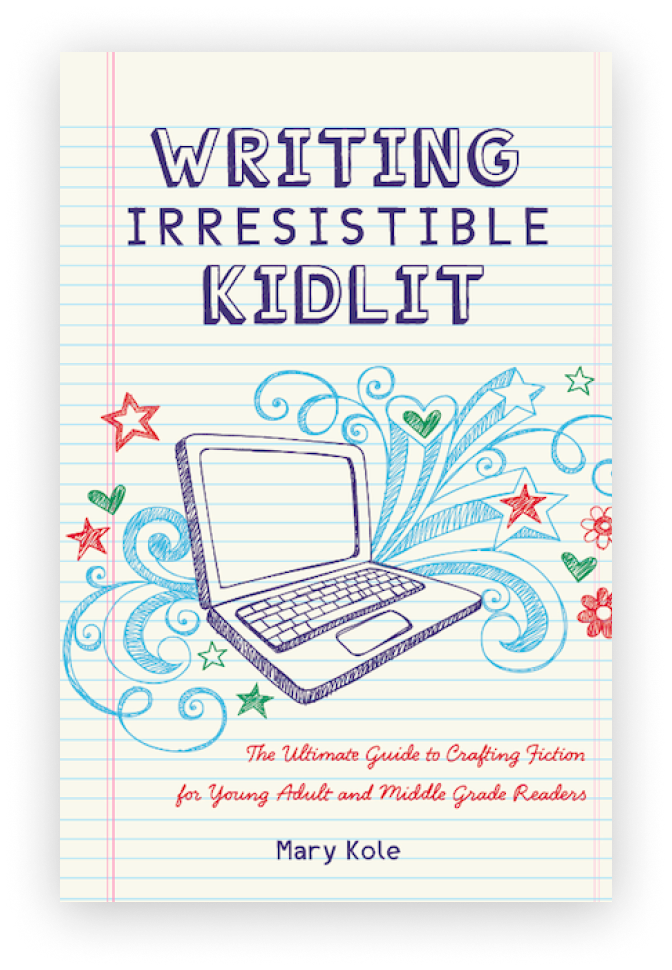Why Every Writer Needs
a Story Editor
By Mary Kole
Mary Kole is a former literary agent, freelance editor, writing teacher, author of Writing Irresistible Kidlit, and IP developer for major publishers, with over a decade in the publishing industry.
A story editor is a vital part of the writing, storytelling, and publishing process, whether it’s someone you hire to work with you freelance or a publishing house editor who acquires and shepherds your work. Even very acclaimed and prolific published writers rely on a story editor, even if they have the image that they write all by themselves. Why is a story editor so essential? Let’s dig in!
What Does a Story Editor Do?
A story editor provides professional insight and feedback to help writers craft their stories and make them the best they can be. A story editor is especially important when it comes to complex stories or stories with multiple characters, as insights from an experienced reader who isn’t personally connected to the story can help writers create interesting plot points and compelling character arcs. A story editor can also provide helpful advice on structure, pacing, dialogue, and other elements of storytelling. By working with a story editor, writers can ensure their stories are engaging and memorable for readers.
It really does come down to nailing the “story” part of your storytelling. The longer I work in the publishing business (and it’s been well over a decade), the more I believe that story is everything. All of the beautiful imagery and prose and writing voice considerations are in service of story, not the other way around. The story is what compels readers and attracts audiences (not to mention literary agents and publishers).
As a writer, you know how important it is to have your work edited and polished before submitting it for publication (or self-publishing). A story editor can be instrumental in that process, because they will be able to provide insight on your work that not even you might have. Here are some of the reasons why you need a story editor to help improve your writing.
Why Do I Need a Story Editor?
First, a story editor can help you ensure that the plot, characters, and scenes of your story are working to their maximum potential to elicit emotions from the reader and make the reader care. This is usually the role of a structural or developmental editor. A professional story editor will also work with you to understand your intentions, so that they are able to make recommendations that are true to the story. Ideally, a good story editor will also be experienced in your genre or category, and can bring current market knowledge to the table.
Second, once the larger moving parts of a story are in place, a story editor can help you develop your grammar, punctuation, and mechanics. They can also help you understand when it is appropriate to break the rules in order to maximize the clarity and impact of your writing on a sentence level. Sometimes a structural or developmental story editor won’t do copy editing, line editing, or proofreading, but sometimes they will. It’s important to note that sentence-level work often comes after structural work. (There are different types of editors and types of editing, so make sure you know the terms.)
Finally, a story editor can help you become a better writer by helping you develop the qualities of a professional author. These include hard work, professionalism, communication skills, persistence, self-discipline, attention to detail, and the ability to receive and respond to writing notes—all of these ephemeral writing tools that not a lot of beginning writers think about.
Hiring a story editor can help you improve your writing skills and make sure that your manuscript is the best it can be before you submit to agents and publishers or self-publish. A story editor can help you develop the structure of your story, and also help you smooth out your sentence craft. If you’re on the fence about working with a story editor, you might want to try it at least once—a good story editor can help you put rocket boosters on your progress as a writer.

Click here to purchase Writing Irresistible Kidlit, my book on fiction craft for MG and YA novels, out from Writer's Digest Books. This will show you my writing craft philosophy and give you lots of valuable advice, including tips for the novel revision process and self-editing. There are over 35 example novels cited and discussed throughout. It’s a valuable resource for any writer’s toolkit.
Click here to purchase Irresistible Query Letters, my book on query letters, including over forty examples with comprehensive notes on each one. There’s a ton of submission advice, best practices, and insider information in these pages, and you’ll really enjoy seeing what other writers are doing in the slush.




